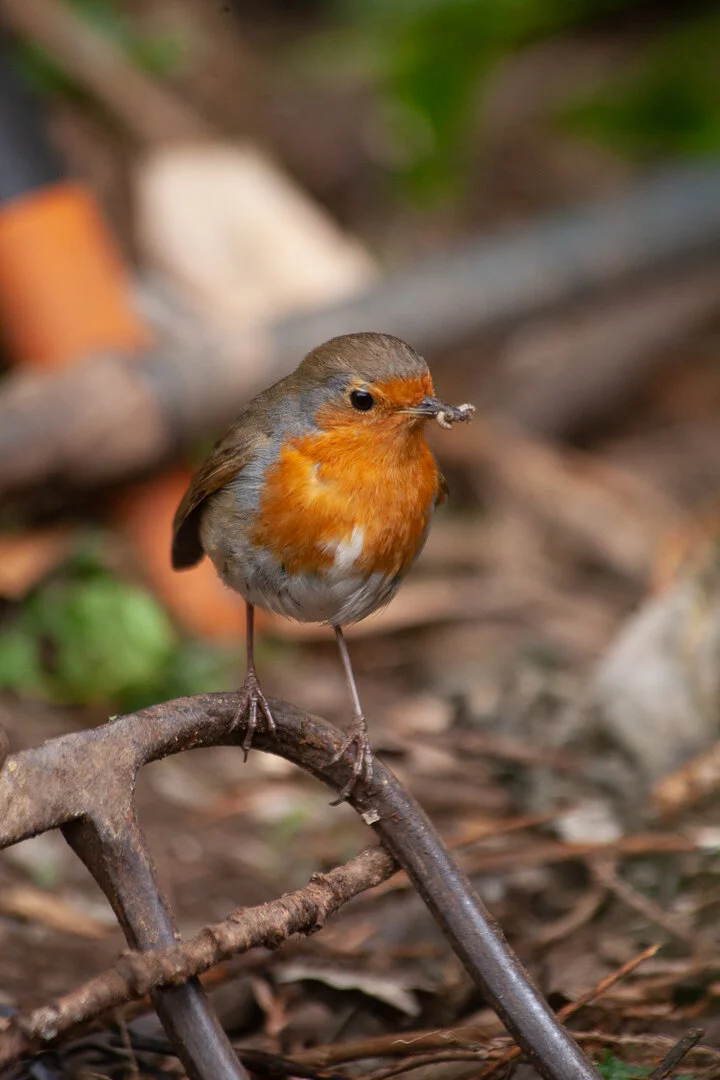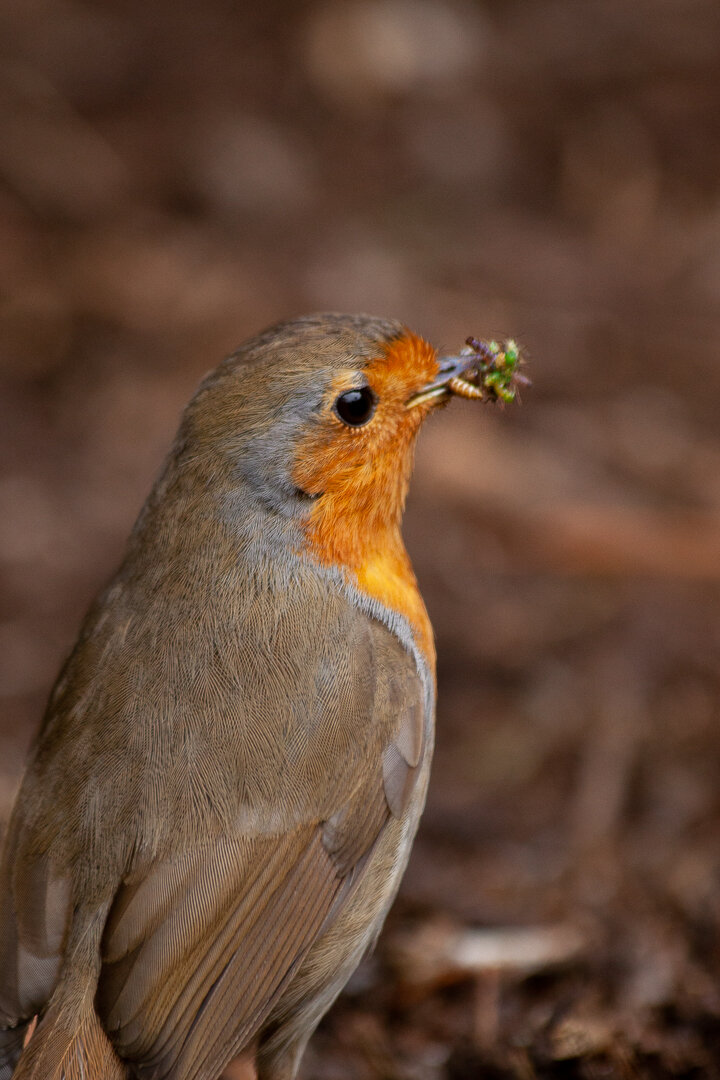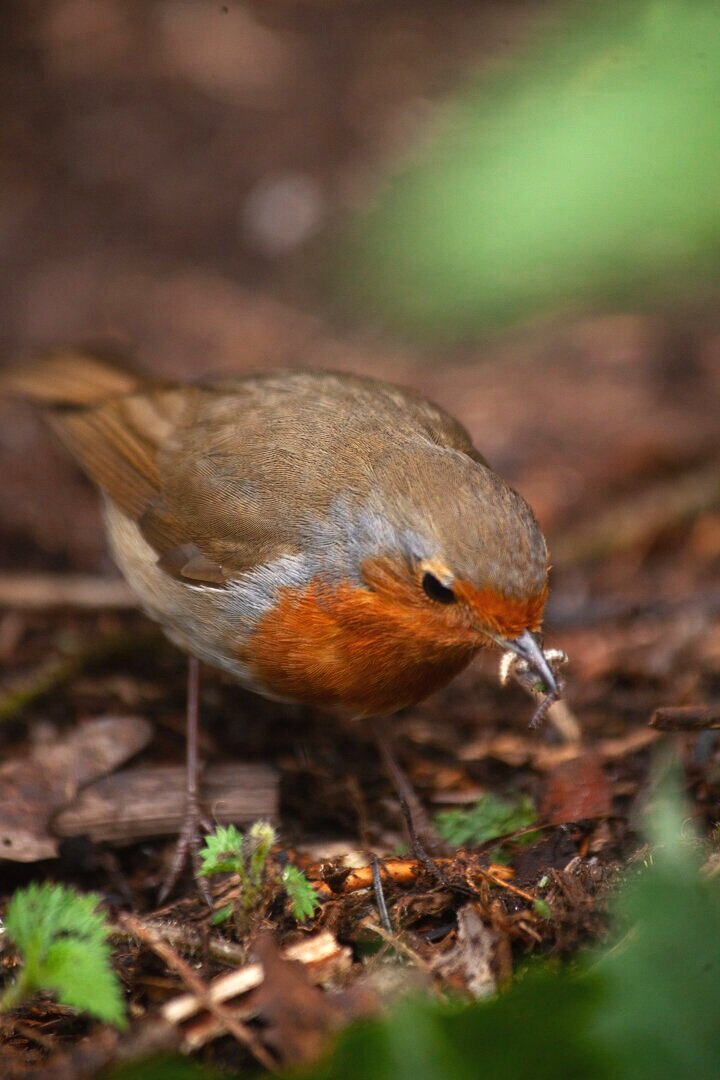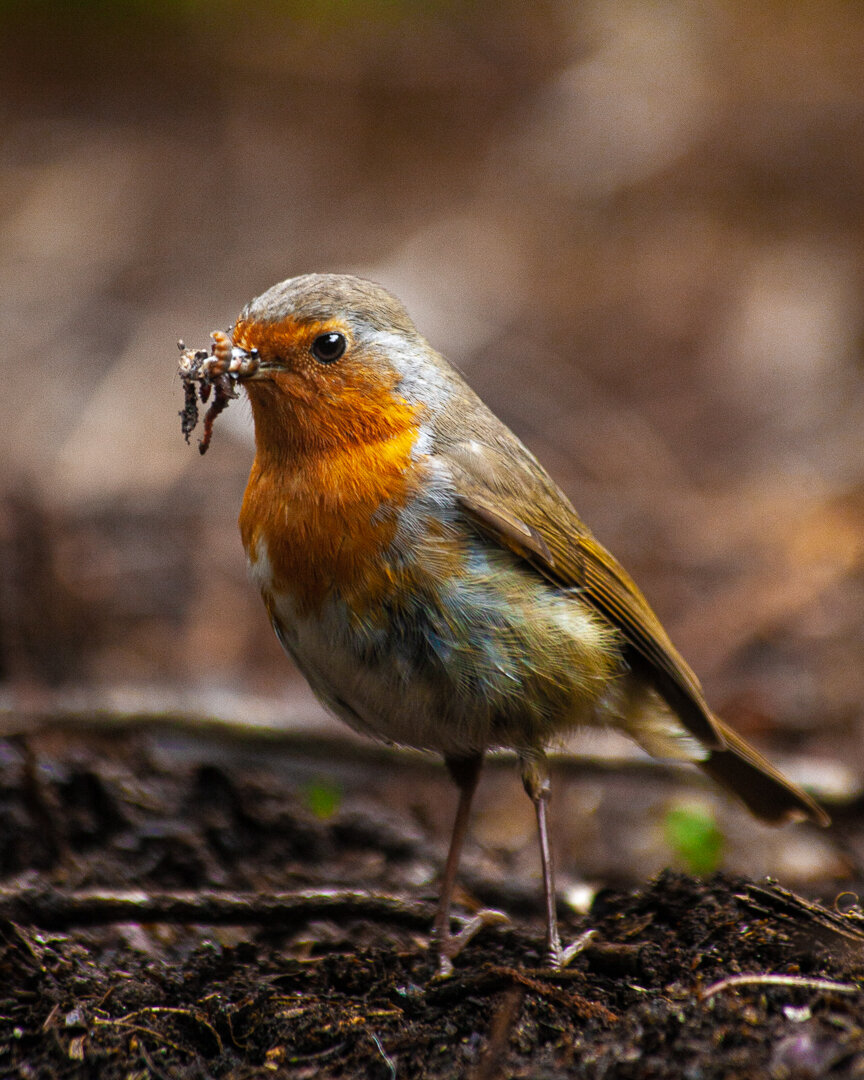Do Robins Recognise (and Follow) Humans?
Have you noticed that some birds watch some humans more than others?
Robins, first to the dawn chorus, do indeed watch some people more than others
They recognise humans as part of remembering patterns such as where and when food is
Robins like humans who fill bird feeders, dig around in the dirt, and have relaxed body language
How to See More Robins
See the evidence yourself: get a bird-feeder and a bag of robin seed; the seeds disappear while small birds appear, often, you’ll even spot them doing it.
Start feeding their needs regularly enough, and they’ll quickly learn to rely on you - especially during January and February.
So keep your new friends in mind - they’ll never forget you.
Leave a feeder to sit empty for a day so that birds will clean up the dropped seeds and be reminded that this might not be an infinite supply, urging them to forage for & remember other sources of food, using the extra energy you provided.
Treat them respectfully and don’t creep about too much, if they get herbivore vibes from you, they’ll get surprisingly close.
If you move like a sneaky predator, then your unstealthy human body will broadcast a threatening signal to every bird paying attention (all of them).
What Does a Robin Following Me Mean?
It means you’re not acting like a predator, at least in the opinion of a robin.
Robins follow larger animals who disturb the ground with their movements, possibly scuffing up grubs, or just making it easier to dig for worms by moving leaves and other debris out of the way.
Do Robins Recognise Humans Faces?
Robins can definitely recognize you by your movements, schedule, and possibly other signals possibly including your face.
Studies specifically show that pigeons and crows can recognize human faces, hold grudges against those humans, and will voice their opinions of you to other birds.
So not only are bird brains smart, robins have been recorded to live up to 19 years, giving them plenty of time to get to know you.
The problem is, Robins have a high mortality rate in their first 2-3 years, while they get wise to the world.
So if you want to make lasting friends, help them out so that they live long enough to remember your face.
Lure Robins for Free
Mark a patch of soil that you can turn over regularly to give the birds fresh access to lots of worms and other bugs, as well as loosening the soil for them to dig themselves.
It’ll also warm you up in the morning.
If you have an open composting system, are preparing soil, or are clever enough to mulch the soil around your plants in order to feed & protect them, you’ll also give the birds a reason to hang around and eat unwanted bugs which threaten your crops.
They’ll also pick their fair share of berries if you let them; which is fine as most plants that grow berries are inedible to humans.
However, strawberry growers should take steps to protect their tempting crops.
How to Get More Robins in Your Garden
All you need is seed in a feeder, or some soil you can toil regularly.
Soon you’ll be recognizing their faces.
“Stay, little cheerful Robin! stay,
And at my casement sing,
Though it should prove a farewell lay
And this our parting spring.
Then, little Bird, this boon confer,
Come, and my requiem sing,
Nor fail to be the harbinger
Of everlasting spring.”William Wordsworth, To a Redbreast, In Sickness.
Robin on a fork with a grub in mouth, Devon, UK
Robins are symbolically associated with spring and subsequent associations with rebirth, particularly remembering the dead, especially those lives lost during winter. In legend, they often serve as messengers of gods across multiple religions.
Robin feasts on grubs from upturned soil, Devon, UK






